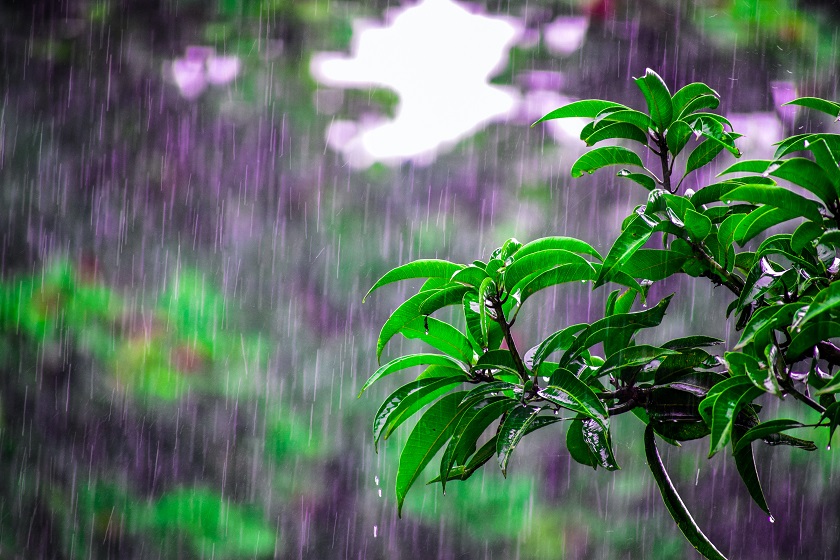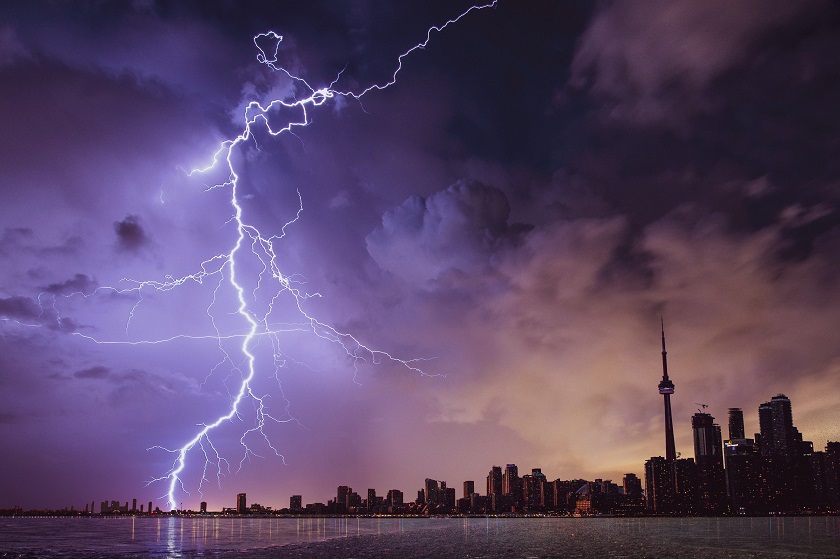Rain, rain go away. Well, we don’t want drought conditions, but we do want to protect our swimming pools and the pool water chemistry, right? Rainfall, even a small amount, can upset the delicate chemistry in the pool water.
Is it going to rain where you are? Do you check the weather reports before you go to work or away on vacation? If so — to either one — do you make certain the pool is covered? If not, you should. If a sudden downpour occurs — they do happen — it may be too late to put the pool cover on so you may need to test the water and add chemicals to get it back in balance.
Pool water that has chemistry imbalances leads to water that is unsafe to swim in. That water — with chemical imbalances can also lead to algae bloom and that can be time-consuming and costly to address.
Does Rain Impact Your Swimming Pool?
 Okay, it’s rained and you weren’t home or you were but didn’t have the pool covered. Now what?
Okay, it’s rained and you weren’t home or you were but didn’t have the pool covered. Now what?
After the storm has passed you will want to check on these items yourself or call on your swimming pool service contractor to help you with this.
- If there was a big storm with lightning strikes or power outages, don’t go wading through deep water toward the swimming pool until you have turned off the electricity to the swimming pool. If you’re home and there is lightning turn the power off to the pool components to protect them. Have the electrical components inspected to make sure you’re safe and that you don’t damage any of the equipment by turning it on if there is the potential for any shorts in the fuses.
- Get it cleaned. If the cover was on, get the water off the cover before you take it off. Don’t let the standing water get into the pool. If the cover wasn’t on, then you will want to clean out any debris, skim off floating items, test the water. You will also want to brush the walls and floor and vacuum the pool water — a rain-filled swimming pool requires a deep clean and water chemistry balancing.
- Test the water after you have added chemicals necessary to bring the balances back where they belong. Depending on the quality of the water and the amount of chemicals added you may need to keep up with testing and assing more chemicals until it’s all aligned.
- Let the pool pump and filter run for longer than usual. Running it for 24-hours — depending on the level of imbalances is not unheard of. It’s better to run the pump and filter for a longer time than a shorter time. Circulating the chemicals and keeping the water circulated is key to clean water.
- Is there too much water in the pool now? Depending on the severity of the rain fall and the amount of water that fell, you may need to drain some water out of the pool. Ask your pool contractor what the proper level of water is in the pool and keep the levels there. Having an overflowing pool is not good for the operation of the filter and skimmer or the pool pump.
More pre-storm prep tips
- Store or tie down or remove or store pool furniture to keep it from blowing into the pool
- Cover the pool
- Cover the grill
- Store cushions
- If you have potted plants move them to a secluded location
- Store pool toys and floating toys so they don’t become airborne
- Disconnect the electrical lines to the pool. If you don’t know how, ask a professional.
- Add some algaecide to the water to prevent any algae growth as a result of the storm.
 It may seem romantic to swim in a storm, but if there is a chance of lightning it’s dangerous
It may seem romantic to swim in a storm, but if there is a chance of lightning it’s dangerous
Swimming in a light rain shower is different than swimming in the midst of a monsoon rain or rain that brings with it thunder and lightning. Let’s face it — you don’t always know what Mother Nature has planned and what starts out as a gentle rain could turn to one in which swimming is dangerous.
We recommend staying out of the water until the storm has passed.
Call your swimming pool service contractor to schedule a pool service visit as soon as possible once the storm has blown through.
